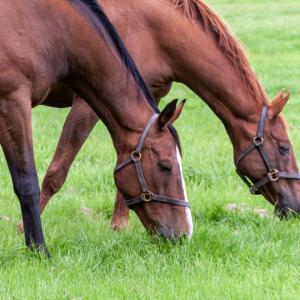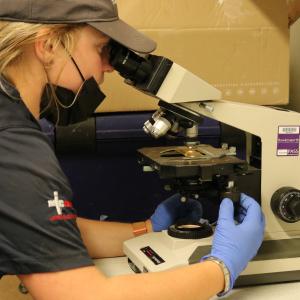
As we approach summer many horses will be spending extended periods of time outside or living out 24 hours a day.
Many of the injuries we see occur whilst horses are out grazing. Good management of paddocks and the surrounding fencing can help to minimise the occurrence of such injuries.
One of the most important things to do is to walk the perimeter of your fields to check that fences are secure and that no sharp nails or broken pieces of wood are present.
Recently we were called to examine a horse that highlighted the damage that sharp nails can do. The horse was brought in from the field severely lame and on examining the sole of the hoof the owner noticed the head of a nail sticking out from the hoof.
Penetrating injuries to a horse’s foot by sharp objects such as nails can cause very severe pain and if the object has damaged one of the inner structures of the hoof, permanent damage and lameness can occur if treatment is delayed.
Once the penetrating object has been removed it can be very difficult to identify the track it has made and what structures are damaged. In this case we were able to X-ray the horse’s foot on the yard prior to removing the nail. This meant we were able to assess the damage caused by the nail and decide what treatment would be needed. Fortunately, in this case the nail narrowly avoided the navicular bone and important soft tissue structures within the hoof and the horse made a full recovery within two weeks.
As well as checking fencing, it is important to ensure that water troughs are cleaned out and are working properly. Dirty or broken water troughs will mean that horses do not take in enough water whilst grazing. This can affect the horse’s digestive system and lead to colic (abdominal pain) occurring.
It also important to walk your paddocks and ensure no holes have developed over the winter months that your horse could get a foot trapped in.

Once fields have been inspected, it is good to decide if they are an appropriate size for the number of horses that will be grazing them. The British Horse Society advise 1-1.5 acres per horse, however this is dependent on many factors such as the size of the horses and the quality of the grazing.
Some horses and ponies will need to have their grazing restricted to prevent them developing obesity or painful laminitis. It is a good idea to place these horses on restricted grazing now before we see large spring growths of grass. The use of a grazing muzzle can also be of great value in preventing these horses overeating.
Regular poo picking is really important to ensure your paddocks stay clean and horses graze the entire field. Also, by doing this you will reduce the number of gastrointestinal parasite eggs that are present on the pasture. This reduces the risk of your horses ingesting eggs and carrying adult parasites.

Alongside regular cleaning of paddocks we advise from March performing faecal worm egg counts every three months to determine if your horse is carrying worms and requires treatment. Many adult horses will not require worm treatment during the grazing season so by doing worm egg counts you can reduce the need to use wormers (anthelmintic drugs). It is important to reduce the use of wormers because parasites can become resistant to them and we want to make sure that we have these treatments available in the long term.
At Paragon we can perform worm egg counts on any samples that are dropped into the practice. We are also happy to advise on turnout for horses that may be susceptible to laminitis.